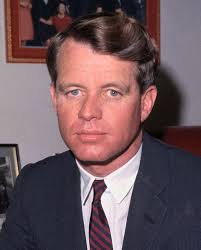The Legacy of Robert Kennedy: A Closer Look

Understanding Robert Kennedy’s Importance
Robert F. Kennedy, often known as Bobby Kennedy, was not only the younger brother of President John F. Kennedy but also a pivotal figure in American politics during the 1960s. His assassination in 1968 marked a profound moment in American history, symbolising both the promise and turmoil of that era. Understanding his contributions and influence is relevant today, especially as discussions about social justice, civil rights, and political activism continue to resonate with contemporary society.
Political Journey
Born on November 20, 1925, Robert Kennedy’s political career began when he served as a campaign manager for his brother during the 1960 presidential election. Following his brother’s assassination, he was elected as a U.S. Senator from New York in 1965. In the Senate, Kennedy became an advocate for civil rights and social reforms, championing the cause of the impoverished and disenfranchised classes. His passionate speeches and active role in various initiatives showcased his commitment to justice and equality.
Major Contributions
During his time in the Senate, Kennedy was instrumental in supporting a range of policies aimed at reducing poverty and promoting civil rights. He played a significant role in the establishment of the Peace Corps and worked on the War on Poverty initiatives. Furthermore, his notable address at the University of Cape Town in 1966 highlighted the importance of racial justice and global peace—issues that remain relevant today.
Assassination and Its Aftermath
Tragically, Robert Kennedy’s life was cut short on June 5, 1968, when he was assassinated shortly after delivering a victory speech after winning the California primary. This shocking event deepened the national trauma following the assassination of his brother and Martin Luther King Jr. just months prior. Kennedy’s death not only hindered the political progress he sought to achieve but also left a legacy of unfulfilled potential.
The Continuing Legacy
Today, Robert Kennedy is remembered not just for his political achievements, but also for his unwavering commitment to social justice. His belief in the power of hope and change resonates with current movements advocating for equality and reform. Numerous foundations and initiatives continue to promote his ideals, focusing on social justice, environmental advocacy, and peace efforts. As the nation navigates contemporary challenges, Robert Kennedy’s legacy serves as a reminder of the importance of compassion and action in the struggle for societal betterment.
Conclusion
In reflecting on Robert Kennedy’s life and contributions, we can draw inspiration for the work that lies ahead. His passion for justice, equality, and peace continues to influence new generations of leaders and activists. As discussions around these issues grow, Robert Kennedy’s story remains a vital part of America’s narrative, urging us to honour the ideals he fought for and strive to embody them in our present and future.









